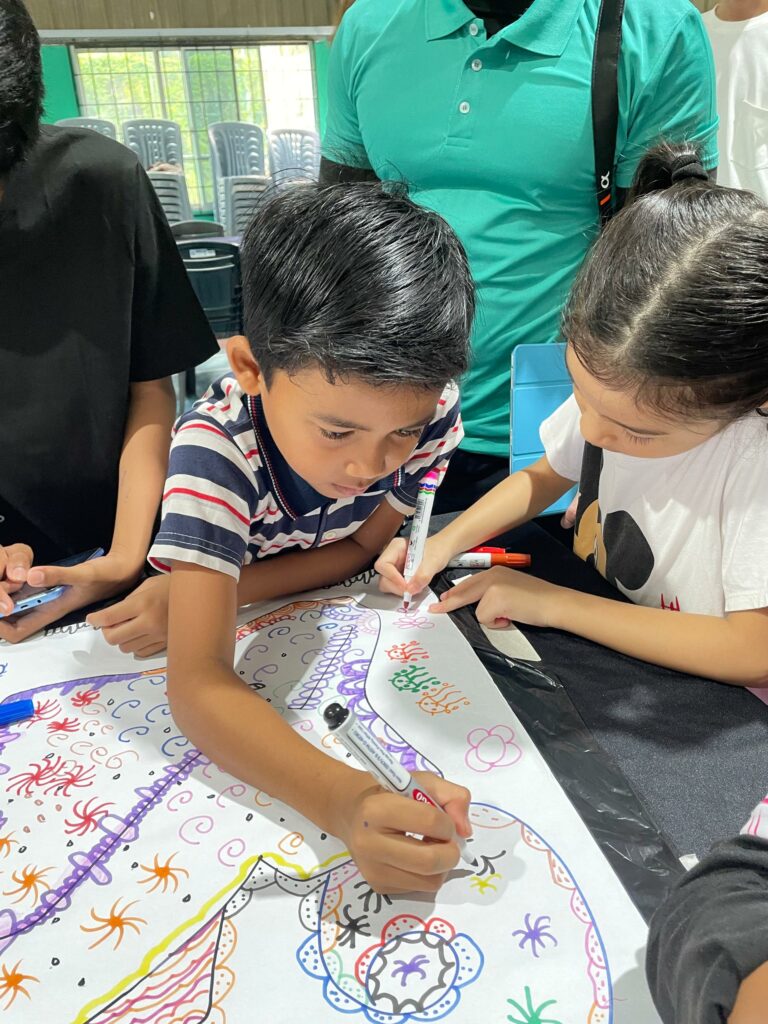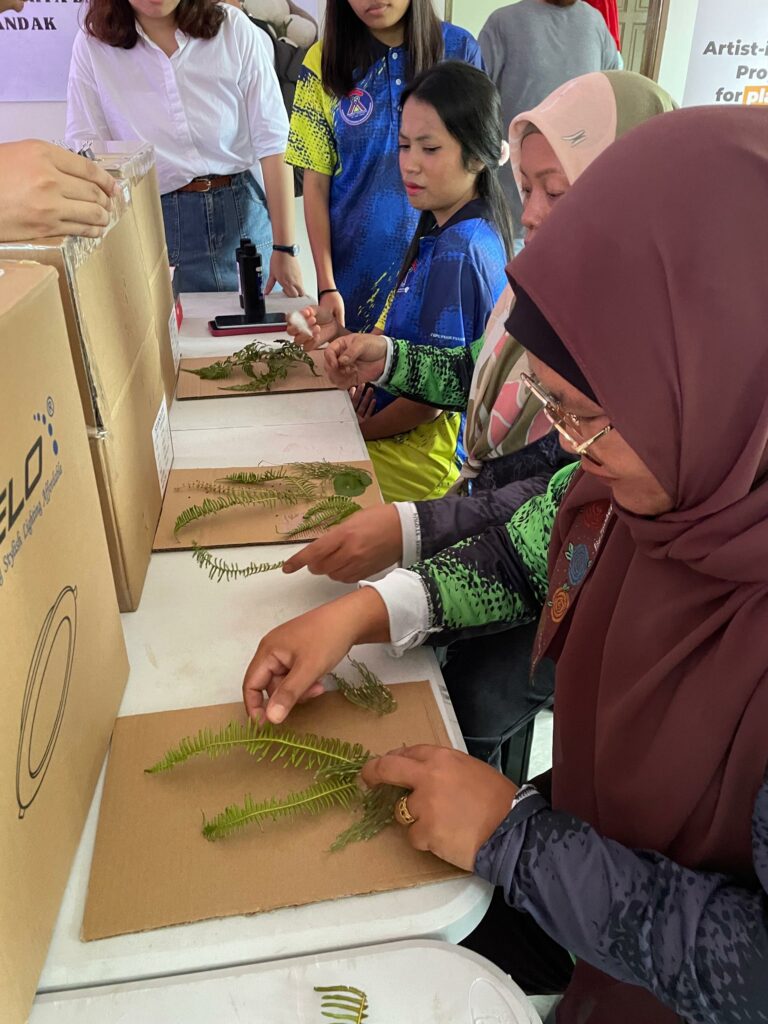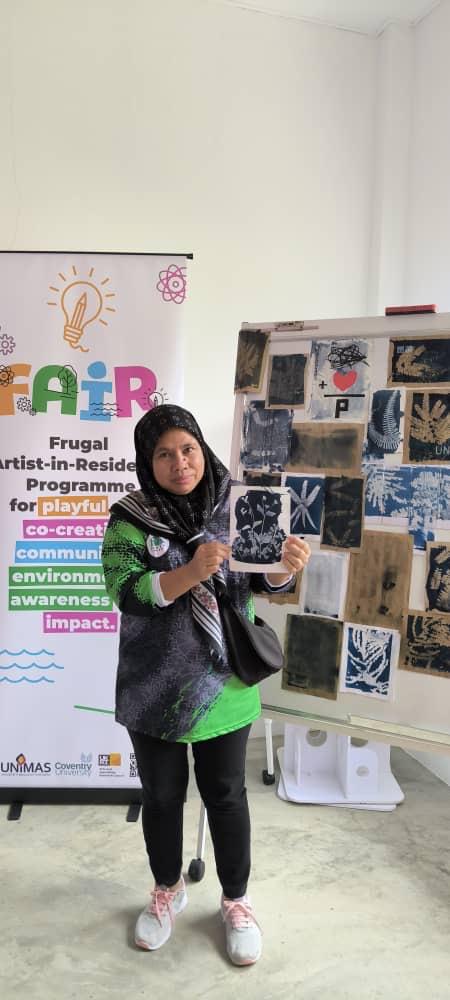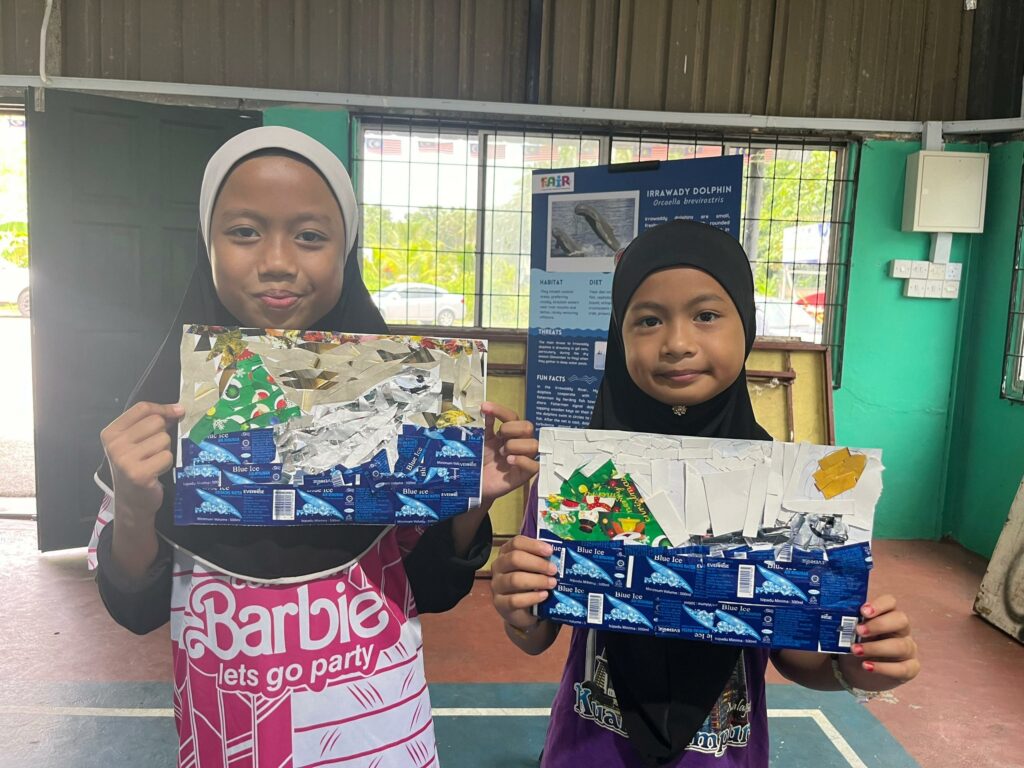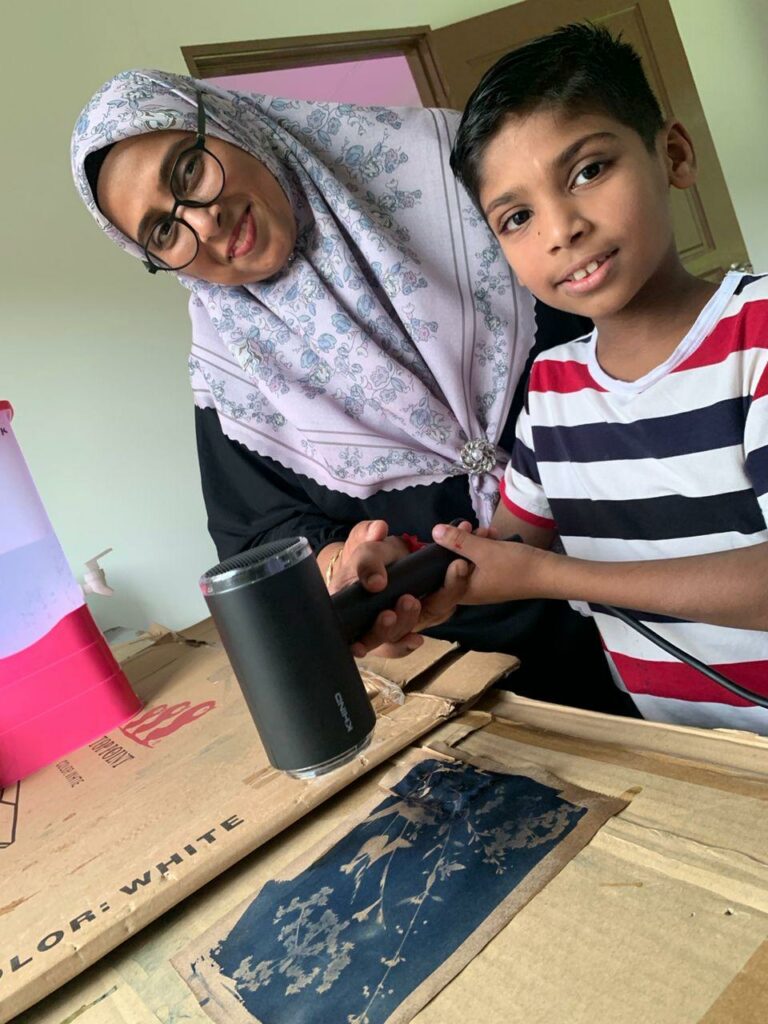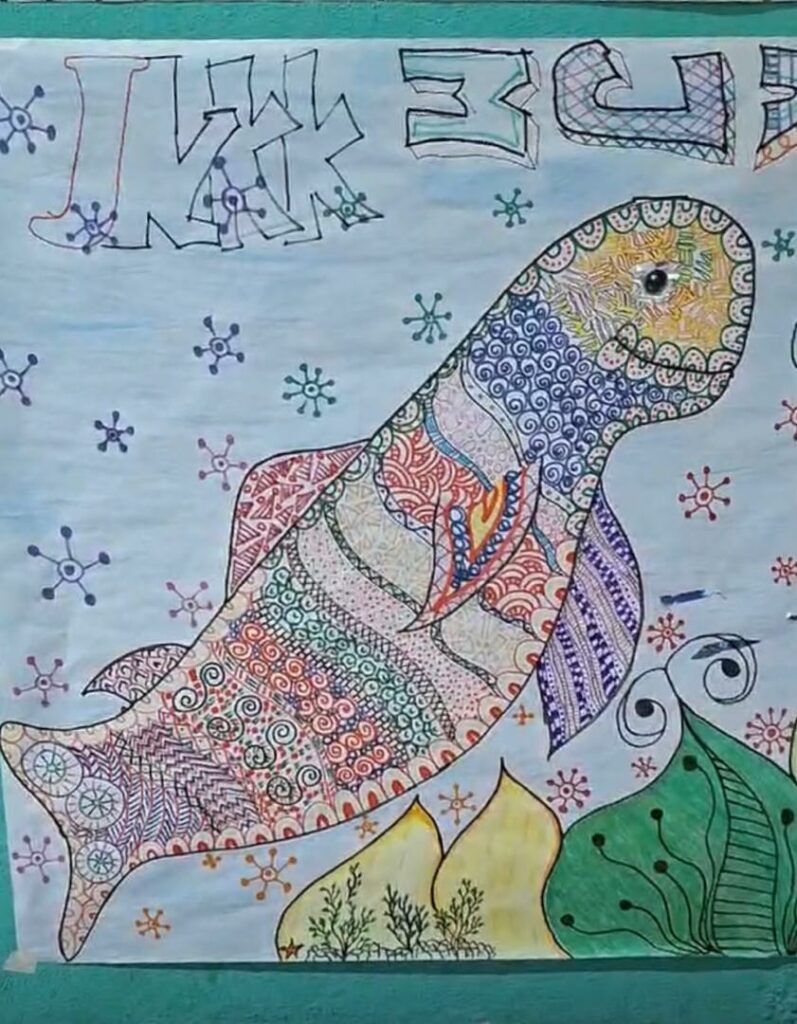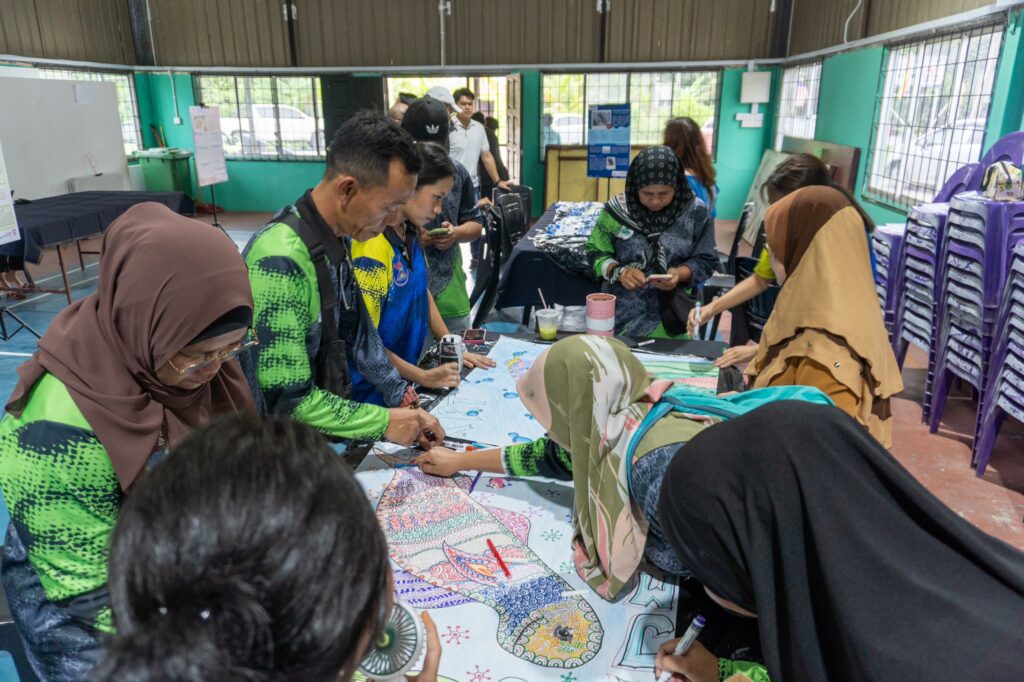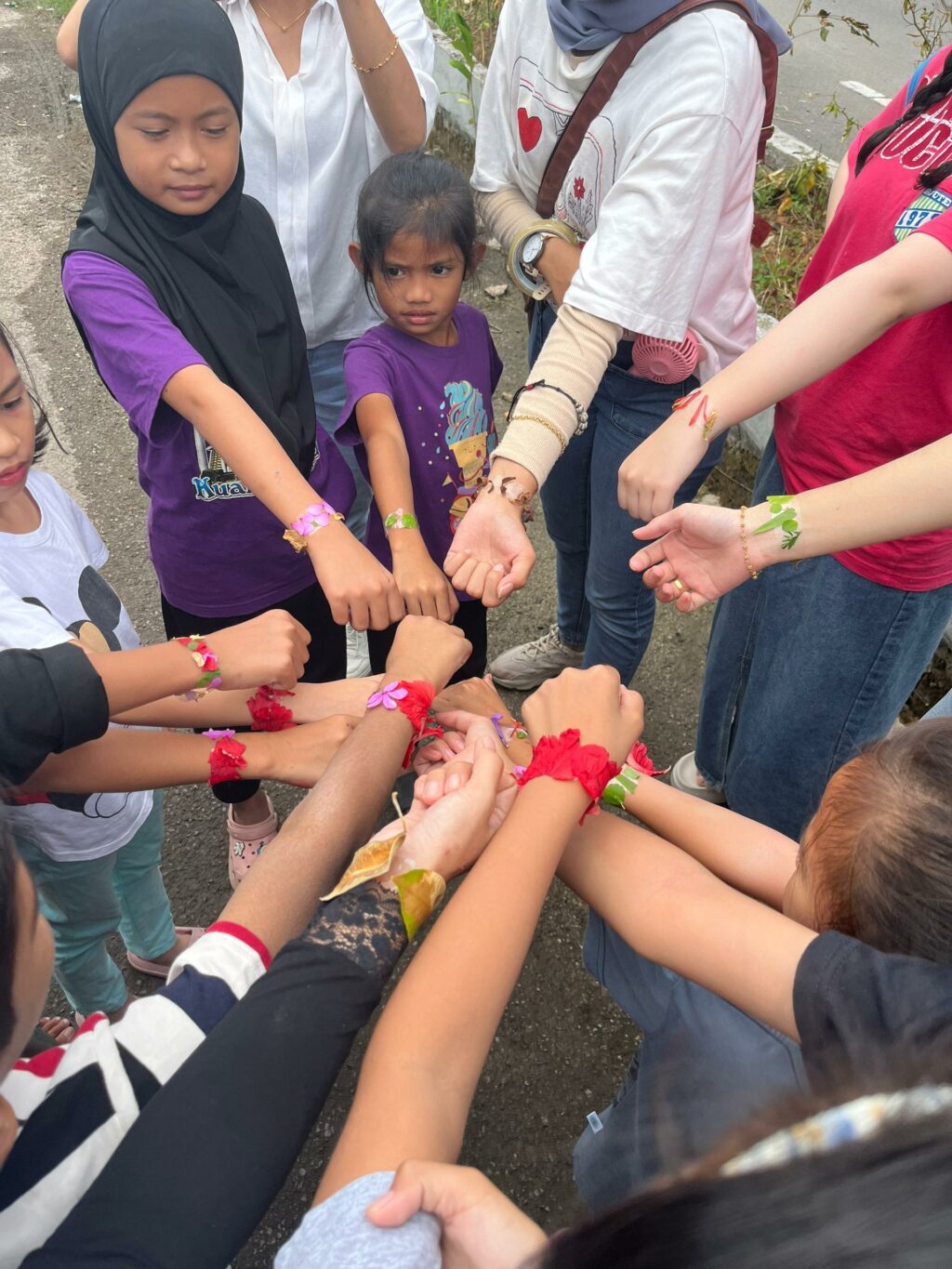
Art has long been recognised as a powerful medium that can spur movements and inspire people into taking action. By using the expression of visual art and other creative forms, awareness about various issues such as environmental awareness can be brought to centre stage, allowing people to connect with nature, understand the impacts of our actions and how they contribute towards climate change today.
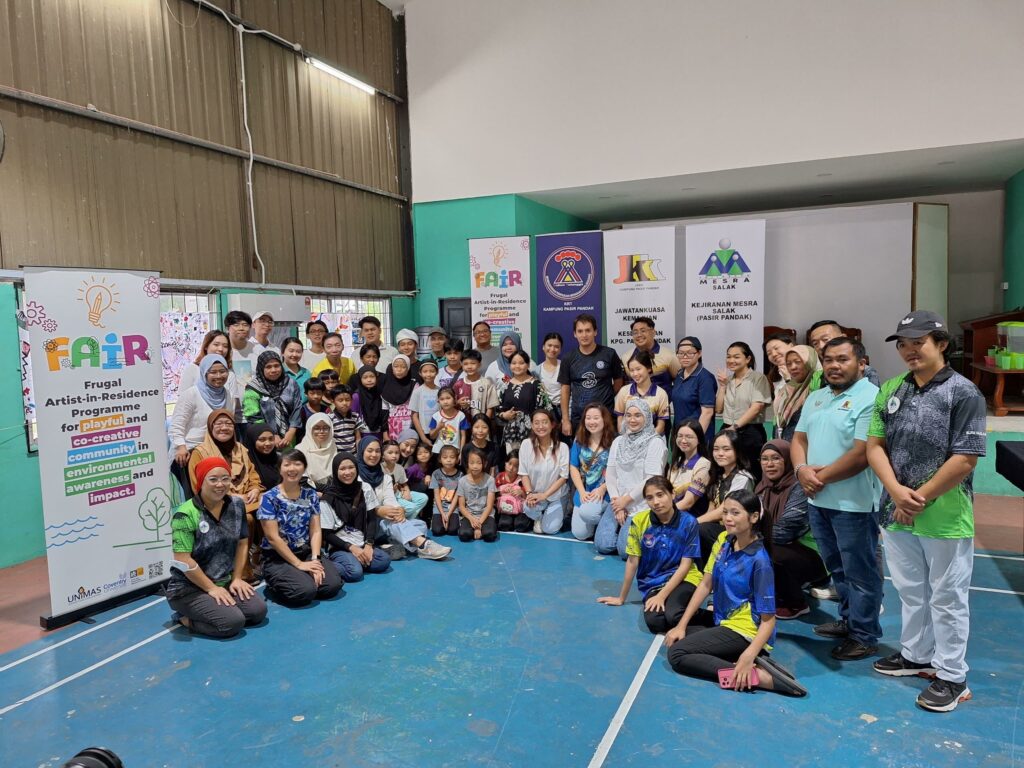
With this understanding in mind, a team of researchers from Universiti Malaysia Sarawak (UNIMAS) sought to utilise art to spark innovation and creativity amongst local community members to empower them into becoming environmental stewards.
The team, together with researchers from Coventry University, have spearheaded the Frugal Artist-in-Residence (FAiR) Programme for Playful and Co-Creative Community Engagement in Environmental Awareness and Impact project.
The FAiR project aims to connect coastal communities with their environment and empower marginalised coastal fishing communities to tackle global challenges such as coastal pollution and its effects on marine ecosystems and local livelihoods by blending the Arts with STEM. Through the integration of Arts and STEM education, the programme intends to promote playful and frugal learning in marine biology, ecology and climate science.
The first step in realising this objective was initiated by the team on 15 September 2024 at Kampung Pasir Pandak, through the introduction of the first FAiR STEAM Beach Festival. Four art and science activities were introduced to over 90 participants, with a focus on engaging children and adults in creativity, wellness and awareness of the village’s biodiversity.
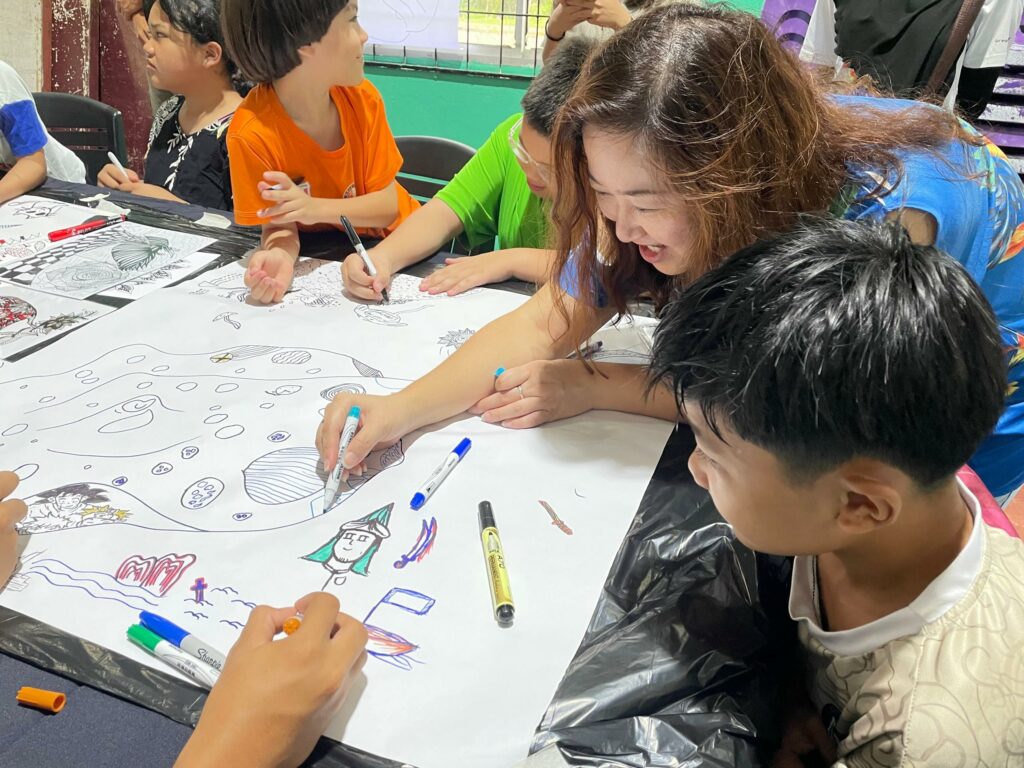
Local artist-in-residence, Angelina Bong, facilitated both the doodling of endangered marine species found only in Sarawak waters as well as the drawings of dugongs and creation of collages using plastic and paper waste. These activities aimed at highlighting to the community members that waste can be used to create pieces of artwork, and become a point of dialogue and discussion towards environmental issues.
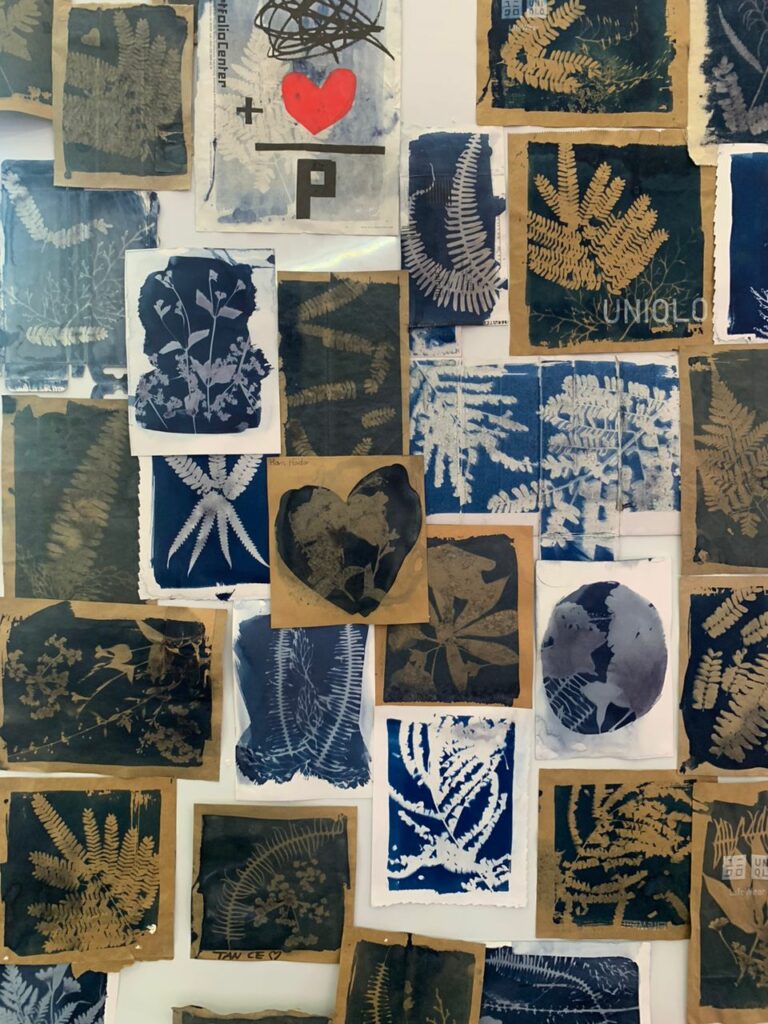
Children were also brought on walks around the village to collect plants and flowers to design their own ‘Nature Bracelets’. Through this activity, the children were introduced to common plants in their village, building their knowledge on their environment. Aside from that, participants also explored STEM through cyanotype prints, a form of photography which does not involve the use of cameras.
The FAiR STEAM Beach Festival was a success among the participants, with many of them stating their interest in taking part in more activities organised by the FAiR project team. This project, funded by UKRI, also sees a collaboration with the Malaysian Society for Marine Sciences, the Village Development and Security Committee and the Neighbourhood Community (KJM Salak) of Kuching North City Council.
